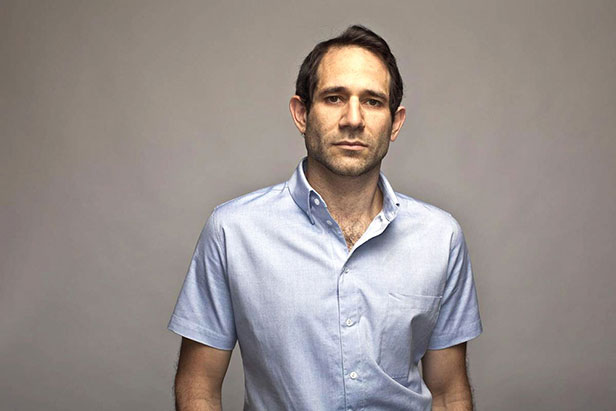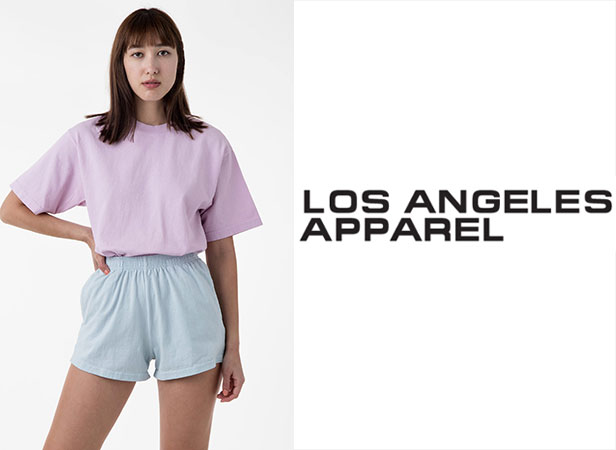October 24, 2018
Court: Charney Owes Hedge Fund Nearly $20 Million
Nonetheless, the founder of American Apparel is vowing to continue the legal battle as he builds his latest venture, Los Angeles Apparel.
The Delaware Supreme Court has ruled that Dov Charney owes nearly $20 million to a New York-based hedge fund, but the founder of American Apparel (asi/35297) and Los Angeles Apparel (asi/67971) told Counselor that the legal battle isn’t over yet. “Justice isn’t easy unless you can pay for it, and I’m up against some of the most sophisticated law firms money can buy, but I have a great case and I’m continuing the fight,” Charney said in an interview.

Dov Charney
The recent Delaware Supreme Court ruling upheld an earlier Delaware Chancery Court decision. In a December 2017 opinion, the Chancery Court determined that Charney had to repay Standard General the $19.5 million loan the hedge fund extended to him to buy enough American Apparel stock for Charney to reestablish control of the company, which dismissed him as CEO in 2014. Most basically, the ruling hinged on the court’s finding that Charney was bound by written agreements he’d signed that obligated him to pay back the funds.
Charney, who is no longer affiliated with Gildan-owned American Apparel, said there is “no way” he can pay the judgment. While Charney is the founder and CEO of Los Angeles Apparel, a company he said is on track to generate $25 million to $30 million in the next year, he said he does not own equity in the LA-based firm. Rather, it’s controlled by investors that include family members, he said. “There are very few Americans that have the ability to pay a sum like that,” Charney told Counselor.
A look inside Los Angeles Apparel.
As part of his counter arguments in the Delaware case, Charney asserted that Standard General fraudulently deceived him into entering into agreements that led to the debt. The alleged fraud, in Charney’s view, should invalidate the agreements and thus alleviate the debt. “They engaged in nefarious activities that make the deal invalid,” Charney told Counselor.
His lawyers had previously stated that Chancellor Andre G. Bouchard erred in ruling on the matter instead of allowing it to proceed to a trial where the American Apparel founder would have had the opportunity to prove his case. Charney has also contended that the judgment against him should have been dismissed because the Chancery Court did not have jurisdiction over the case.
But with the Delaware court battle decided, Charney is refocusing the legal fight in California. In 2015, Charney filed a lawsuit in Los Angeles County Superior Court against Standard General and former American Apparel executives, alleging fraud and conspiracy. The case was docked while the Delaware courts weighed the loan repayment case, but can now be heard. It wasn’t clear when a hearing might proceed. “I could see this being litigated for years to come,” Charney told Counselor.
Even so, Charney said that his primary focus is on building Los Angeles Apparel into a powerhouse. The company, he said, employs about 400 people, manufacturing fashionable apparel basics like T-Shirts and sweatshirts in Los Angeles – just as American Apparel had done under Charney’s leadership. Los Angeles Apparel sells heavily into the promotional products/imprintable apparel market. “There has been lots of demand. We’re shipping T-shirts all over the world,” said Charney, whose current company has a partnership with Top 40 supplier TSC Apparel (asi/90518). “My passion is building on the incredible momentum we already have going here.”

The 6.5oz Garment Dye Pastel Crew Neck T-Shirt is one of the new styles from Los Angeles Apparel that Charney says is attracting a lot of attention.
In November of 2016, American Apparel filed for bankruptcy for a second time and entered into a proposed agreement to be acquired by Top 40 supplier Gildan (asi/56842). In February 2017, for a price of $88 million, Montreal-based Gildan completed the purchase of American Apparel’s intellectual property rights, some wholesale merchandise and some equipment, but not its production facilities or retail stores. Gildan has been selling the American Apparel brand in the promotional products/branded apparel market.
For a detailed account of American Apparel’s final days as a vertically integrated Made-in-the-USA apparel manufacturer, read our in-depth feature. At its height, about 11,000 people worked in American Apparel’s factories, warehouse and retail stores, according to Charney. Approximately 3,500 workers in the company’s now-shuttered downtown L.A. factory were laid off after the final bankruptcy.
